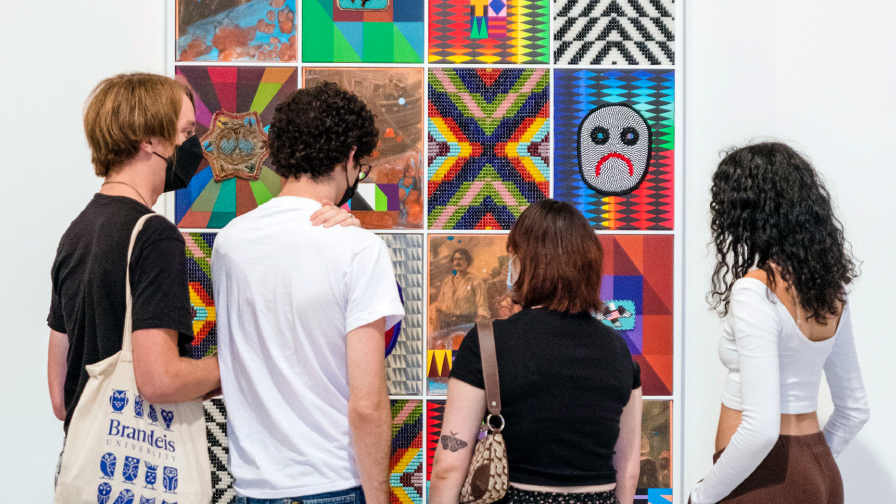About Us

Installation view, re: collections, Six Decades at the Rose Art Museum, Rose Art Museum, Brandeis University, June 25, 2021–June 14, 2024. Photo by Mel Taing.
Mission Statement
Rose Art Museum fosters community, experimentation, and new knowledge through direct engagement with modern and contemporary art, artists, and ideas.
About the Rose Art Museum
Since its founding at Brandeis University in 1961, the Rose Art Museum has established itself as one of the nation's premier university art museums, renowned for its forward-thinking curatorial vision and commitment to contemporary art. Under the leadership of its inaugural director, Sam Hunter, the museum began assembling what would become a stellar permanent collection. Hunter acquired works by then-emerging artists—including Robert Indiana, Ellsworth Kelly, Roy Lichtenstein, Marisol, Robert Rauschenberg, and Andy Warhol—many of whom are now recognized as iconic figures in art history.
Building on Hunter’s bold and prescient foundation, subsequent directors continued to shape the Rose into a leading center for contemporary art. Landmark solo exhibitions—such as those devoted to Louise Nevelson (1967), Howardena Pindell (1993), and Jack Whitten (2013)—and pioneering group shows—including 12 Black Artists from Boston (1969), Vision & Television (1970), More than Minimal: Feminism and Abstraction in the 1970s (1996), and Pretty Raw: After and Around Helen Frankenthaler (2015)—demonstrated the museum’s unwavering commitment to artistic innovation, equity, and the reexamination of art historical narratives.
The Rose's influence extended internationally as well. In 1967, director William Seitz organized the São Paulo Biennial, bringing global attention to the museum. Fifty years later, the Rose would co-present the U.S. Pavilion at the 2017 Venice Biennale, organized by former director Christopher Bedford and featuring the work of acclaimed artist Mark Bradford.
Today, the Rose Art Museum remains a vibrant nexus for art, education, and social justice. Through a dynamic program of exhibitions, new commissions, artist residencies, performances, and public events, the museum supports both established and emerging voices in contemporary art. Deeply rooted in the values of Brandeis University, the Rose engages communities on campus, throughout Greater Boston, and around the world—activating the power of art and creative expression to inspire dialogue, deepen understanding, and imagine a more just and equitable future.
Land Statement
The Rose Art Museum resides on the ancestral homelands of the Massachusett people. We recognize that the museum's very existence here has been facilitated by the violent dispossession, enslavement, and dispersal of multiple Indigenous peoples and communities.
The Rose commits to actively learning from, respecting, and amplifying Native voices. This land acknowledgment is a living document. It is only one aspect of the museum’s Diversity, Equity, Inclusion, and Accessibility commitment. This commitment is part of an ongoing effort to transform the Rose into an anti-racist, anti-colonial, diverse, and inclusive institution.